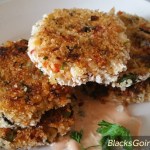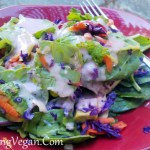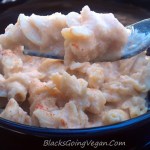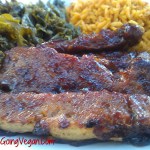Health Building Nutrition – The Four Food Groups
 Whole grains, such as rice, oats, corn, or pasta, are great for energy. Whole grains provide protein and fiber, along with complex carbohydrates for energy. Grains are a good source of B vitamins and minerals. Whole-grain breads, brown rice, whole grain pasta, corn, millet, barley, bulgur, oatmeal, and quinoa are all great choices.
Whole grains, such as rice, oats, corn, or pasta, are great for energy. Whole grains provide protein and fiber, along with complex carbohydrates for energy. Grains are a good source of B vitamins and minerals. Whole-grain breads, brown rice, whole grain pasta, corn, millet, barley, bulgur, oatmeal, and quinoa are all great choices.
Aim for 5 or more servings per day. Serving size: 1/2 cup hot cereal; 1 ounce dry cereal (by weight), 1 slice bread.
 Legumes (i.e., beans, peas, and lentils) are loaded with protein, minerals, and fiber. Legumes—all types of beans, peas, and lentils—are great sources of fiber, protein, iron, calcium, zinc, and B vitamins. This group includes chickpeas, baked and refried beans, black beans, navy beans, lentils in every variety, peas, and the full range of soy products: tofu, soy milk, tempeh, and veggie burgers.
Legumes (i.e., beans, peas, and lentils) are loaded with protein, minerals, and fiber. Legumes—all types of beans, peas, and lentils—are great sources of fiber, protein, iron, calcium, zinc, and B vitamins. This group includes chickpeas, baked and refried beans, black beans, navy beans, lentils in every variety, peas, and the full range of soy products: tofu, soy milk, tempeh, and veggie burgers.
Not only are legumes free of cholesterol and animal fat (like all foods from plant sources), but they also help reduce cholesterol and stabilize blood sugar.
Aim for 2 or more servings per day. Serving size: 1/2 cup cooked beans; 4 ounces tofu or tempeh; 8 ounces soy milk.
 Vegetables, such as broccoli, spinach, carrots, sweet potatoes, and many others, are rich in vitamins, minerals, and fiber. Vegetables are nutritious for two main reasons:
Vegetables, such as broccoli, spinach, carrots, sweet potatoes, and many others, are rich in vitamins, minerals, and fiber. Vegetables are nutritious for two main reasons:
First, they are rich in nutrients your body needs: vitamins and minerals, fiber, and special plant nutrients called phytochemicals. Second, they don’t contain any cholesterol or animal fat at all. The same is true of grains, fruits, and legumes, as you will see shortly.
Some of the most nutritious vegetables include dark leafy greens like broccoli, collards, kale, mustard and turnip greens, spinach, chicory, and bok choy. Other highly nutritious choices are the yellow-orange vegetables, such as carrots, winter squash, yams, and pumpkin.
Aim for at least 4 servings or more per day. Serving size: 1 cup raw; ½ cup cooked.
 Fruits, from apples, oranges, and bananas to mangoes, papayas, and watermelon, provide vitamins and minerals, too. Fruit is loaded with fiber, vitamins (especially vitamin C), minerals, and phytochemicals—special disease-fighting compounds found in plants. Citrus fruits, melons, apples, pears, bananas, and strawberries are all good choices, and you’ll find many more in the produce department. Choose whole fruit over fruit juice, which has more calories and less fiber.
Fruits, from apples, oranges, and bananas to mangoes, papayas, and watermelon, provide vitamins and minerals, too. Fruit is loaded with fiber, vitamins (especially vitamin C), minerals, and phytochemicals—special disease-fighting compounds found in plants. Citrus fruits, melons, apples, pears, bananas, and strawberries are all good choices, and you’ll find many more in the produce department. Choose whole fruit over fruit juice, which has more calories and less fiber.
Aim for 3 or more servings per day. Serving size: 1 medium piece of fruit; 1/2 cup cooked fruit; 1/4 cup dried fruit; 4 ounces juice.
Add a reliable source of vitamin B12. Vitamin B12 can be found fortified cereals, fortified soy milk, some veggie burgers, or any common multivitamin or vitamin B12 supplement.
Category: Veganism and African Americans

























